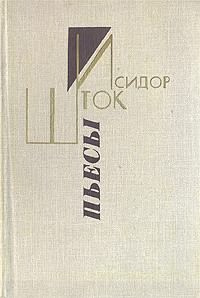Читать книгу "Митрополит Исидор Киевский (1385/1390–1463) - Сергей Юрьевич Акишин"
Шрифт:
Интервал:
Закладка:
Some attention of historiography has been given to the issue of the library and literary heritage of Isidore of Kiev, however the available studies are devoted either to his writings in general and become already outdated, or to his individual treatises, which makes it impossible to get a complete and distinct idea of Isidore as a prominent bibliophile and literary figure of the late Byzantine period. For his long life Isidore had managed to collect or work with an impressive number of books. Isidore made some notes in most of these manuscripts, part of the manuscripts was copied by his own hand, and some manuscripts were taken from the Papal library in the last decade of Isidore's life. At the moment, scientists have more than 160 codes that Cardinal was dealing with; the number of the books read by Isidore puts him on a par with such outstanding minds of the past as St. Photius of Constantinople and Michael Psellos.
Analysis of the Isidore's library allows to reveal the scope of his interests more or less clearly and to understand the features of a late-Byzantine intellectual in general. The range of his reading was extremely broad and included books of philosophical, historical, rhetorical, astrological and astronomical, natural-science and theological subjects. In fact there were only few manuscripts of theological content that passed through Isidore's hands or were kept in his personal library. This was probably due to the fact that basically Isidore collected books of the humanities and natural sciences, and he could refer to theological and patristic books any time in monastery or other institutional libraries. Anyway, a number of patristic books in Greek, taken by Isidore in the Papal library in 1455, can confirm his interest in the theological subject. Probably, there could have been much more books of that kind, but the Papal library was just started, so the number of books in Greek could be very limited.
Metropolitan Cardinal Isidore left behind a significant literary heritage, which, although inferior in terms of the amount of works to his younger contemporaries, such as St. Mark of Ephesus, Patriarch of Constantinople Gennadios II Scholarios or Bessarion of Nicaea, nevertheless, occupies a prominent place in the late Byzantine literature of the first half of the 15th century. The author has identified 52 works covering various literary genres: panegyrics in honor of Byzantine and German emperors; letters in Greek as well as letters translated into Latin, Italian and Slavic; theological, hymnographic and historical canonical works. All works are attributed to Isidore thanks to the surviving autographs, although no work has an inscription of his full name, with the exception of messages from Buda and to the Kholmsk elders.
The epistolary heritage and panegyrics of Isidore present great importance for historical science. Isidore's letters in Greek testify to him being a talented scientist and inscribe his personality in the environment of the late Byzantine intellectual elite, while the Latin letters become the most valuable source on the history of siege and fall of Constantinople and the subsequent reaction of the world community to this tragic event. Panegyrics in honor of the royal persons give a huge volume of historically important information necessary to provide a historical overview of the system of government, foreign and domestic policies of the Byzantine and German emperors in the late 14th — first third of the 15th centuries.
Isidore's theological works are of less importance for the Orthodox theology. Although they bear a vivid imprint of originality and intellectualism of the originator, they are just rehashing of patristic thoughts and quotations already known for a long time. These works have significance only for the idea of Union developed by Latinophile theologians within the framework of the discourse connected with the Basel and Ferrara-Florentine Councils and the subsequent reaction of the Orthodox population of the Byzantine Empire to this idea of Union. Based on the analysis of these works, the author shares the hypothesis of Ioannis Polemis that Isidore considered it possible to enter into union irrespectively of any theological basis.
The hymnographic works of Isidore are of particular interest: 4 prayers and 2 unpublished acoluthies were written in honor of the Archangel Michael and St. Martyr Demetrius of Thessalonica. If the prayers reflected a kind of political ideology of the Byzantine Empire and were written
Внимание!
Сайт сохраняет куки вашего браузера. Вы сможете в любой момент сделать закладку и продолжить прочтение книги «Митрополит Исидор Киевский (1385/1390–1463) - Сергей Юрьевич Акишин», после закрытия браузера.




